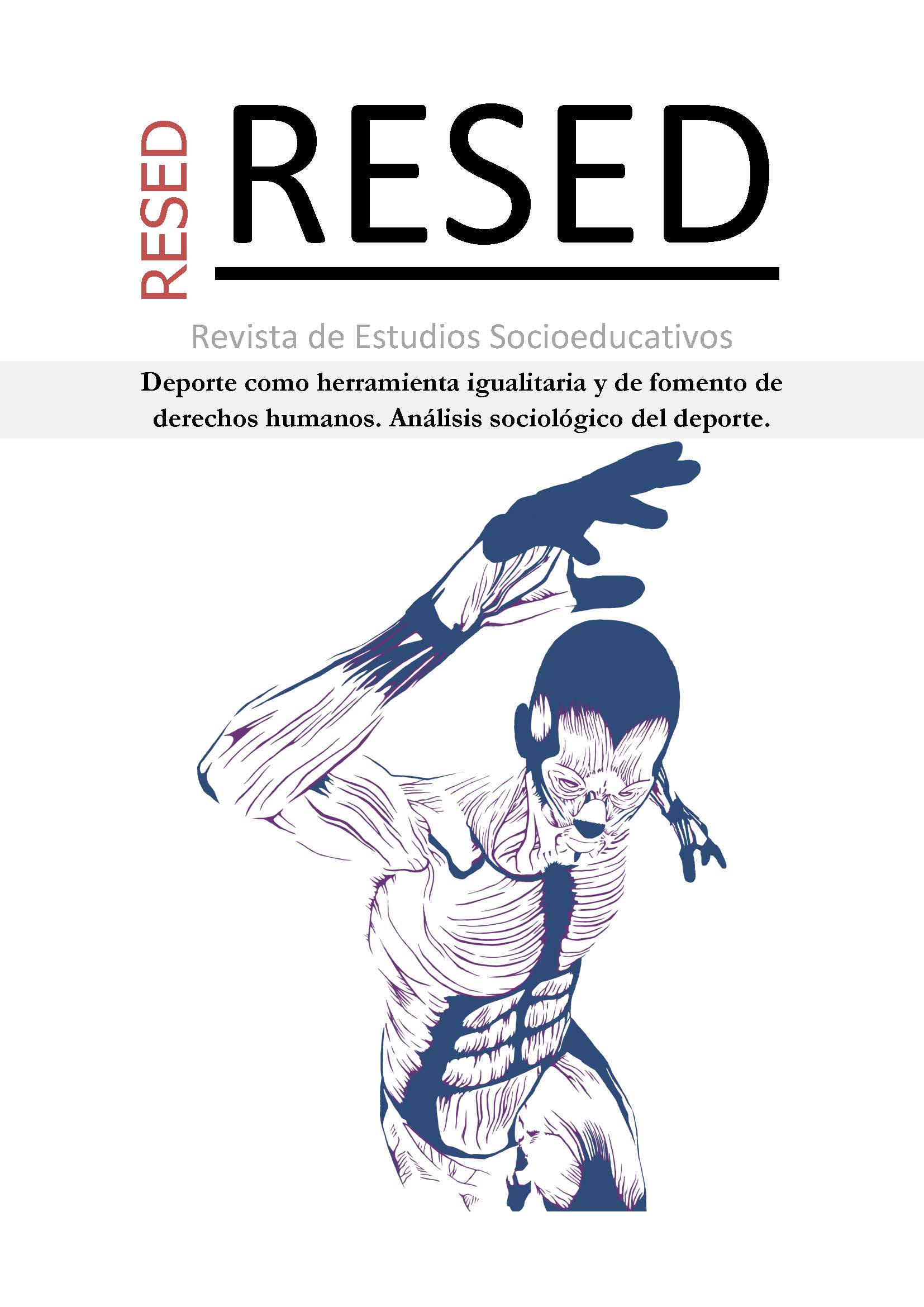Aproximación al perfil psicosocial del voluntario deportivo

Información
Resumen
La organización de distintos eventos de participación deportiva y de promoción del deporte es un marco idóneo para conocer el perfil del voluntariado como elemento clave en la gestión de estas actividades. Este trabajo se centra en la aproximación psicosocial del voluntario deportivo para dar nociones de la adecuación de los perfiles necesarios en este ámbito a través de indicadores como la edad, el sexo, el área de participación preferente, práctica deportiva y permanencia en otros campos de voluntariado. Consideramos que gestionar el voluntariado supone trabajar con procedimientos que permitan seguir unas pautas y criterios comunes, útiles en todas las fases del voluntariado de cualquier entidad.
Palabras clave
Descargas
Cómo citar
Licencia

Esta obra está bajo una licencia internacional Creative Commons Atribución-NoComercial 4.0.
Citas
Angosto Sánchez, A. (2022). El voluntariado en eventos deportivos en España: un análisis de la motivación y otros factores asociados. Tesis doctoral. España: Universidad de Murcia. https://digitum.um.es/digitum/handle/10201/117765
Cnaan, R. A. & Goldberg-Glen, R. S. (1991). Measuring motivation to volunteer in human services. Journal of Applied Behavioral Science, 27(3), 269-284.
Cuskelly, G. (2004). Volunteer retention in community sport organizations. European Sport Management Quarterly, 4, 59-76.
Ellison, F. & Kerr, H. (2014). The student volunteering landscape. Londres: National Union of Students.
Fairley, S. & Phillips, P. (2018). Australia. En K. Hallmann & S. Fairley (Eds.), Sports Volunteers around the globe: meaning and understanding of volunteering and its societal impact (Vol. 15, pp. 7-20). Alemania: Springer Nature. https://doi.org/10.1007/978-3-030-02354-6
Farrell J. M., Johnston M. E. & Twynam, G. D. (1998). Volunteer motivation, satisfaction, and management at an elite sporting competition. Journal of Sport Management, 12, 288-300.
García Ferrando, M. (1997). Los españoles y el deporte (1980-1995): un estudio sociológico sobre comportamientos, actitudes y valores. España: Consejo Superior de Deportes.
Gidron, B. (1985). Predictors of retention and turnover among service volunteer workers. Journal of Social Service Research, 8(1/2), 1-16.
Gil García, S. (1990). Voluntarios de hoy. En L. A. Iñaki, G. R., Joaquín & M. Marco, El voluntariado en la animación sociocultural (pp. 81-103). Madrid: Popular.
González Ruiz, S. L., Hernández Mendo, A. & Pastrana Brincones, J. L. (2010). Herramienta software para la evaluación psicosocial de deportistas y entornos deportivos. Lecturas: EF y Deportes. Revista Digital, 15 (144).
Green, B. C. & Chalip, L. (1998). Sport tourism as the celebration of subculture: Parading identity at a woman’s football tournament. Annals of Tourism Research, 25, 275-291.
Jia, R., Sánchez-Sáez, J. A., Maciá-Andreu, M. J., Gallardo-Guerrero, A. & Segado-Segado, F. (2023). El sentido de comunidad como precursor del voluntariado deportivo. El caso del China Open 500. Journal of Sports Economics & Management, 13, 35-53.
Jiménez Rodríguez, S. (1995). El voluntariado en la gestión pública. Comunicación en I Encuentro Provincial sobre Deporte Municipal. España: Instituto Andaluz del Deporte.
Jöreskog, K. G. & Sörbom, D. (1996). LISREL 8: users’ reference guide (2ª Ed.). Lincolnwood: Scientific Software International.
Leal Millan, A. G. & Roldan Salgueiro, J. L. (2001). Benchmarking and Knowledge Management: a European Approach. Or Insight, 14(4), 11-22.
Llopis Goig, R. (2011). El voluntariado deportivo en España. Ponencia presentada en el I Congreso Europeo de Voluntariado Deportivo. https://onx.la/74a93
MacLean, J., & Hamm, S. (2007). Motivation, commitment, and intentions of volunteers at a large Canadian sporting event. Leisure/Loisir, 31, 523-556.
Martínez Lemos, R. I. & Casáis Martínez, L. (2010). Aproximación al perfil sociodemográfico del voluntariado en una competición europea de Baloncesto en Silla De Ruedas (B.S.R). Apunts. Educación Física y Deportes, (99), 13-19.
Montalvo, A. (2018, 3 de julio). El voluntariado deportivo. Marca. https://goo.su/qP2nzz
Observatorio del Tercer Sector. (2009). Manual de Gestión del voluntariado. Barcelona: Obra Social “La Caixa”.
Piliavin, J. A. & Callero, P. L. (1991). Giving Blood: The development of an Altruistic Identity. Baltimore: Johns Hopkins University Press.
Ralston, R., Downward, P. & Lumsdon, L. (2004). The expectations of volunteers prior to the XVII Commonwealth Games, 2002: A qualitative study. Event Management, 98(1-2), 13-26.
Smith, A. M. (1992). The consumers evaluation of service quality: Some methodological issues. En J. Whitelock (Ed.), Marketing in the new Europe and beyond (pp. 633-648). Stanford, CA: University of Stanford.
Special Eurobarometer 412. (2014). Sport and physical activity report. European Comission.
Special Eurobarometer 525. (2022). Sport and physical activity report. European Comission.
Strigas, A. (2001). The assessment of motives and the development of a typology of motivational factors for volunteers in marathon running events. Unpublished doctoral dissertation. Tallahassee: Florida State University.
Süleyman M. Y. (2012). Instruments for Measuring Service Quality in Sport and Physical Activity Services. Coll Antropol, 36(2), 689-696.
Velázquez Hernández, P. (2011). Sports Volunteering: the perspective of the European Commision. Ponencia presentada en el I Congreso Europeo de Voluntariado Deportivo. https://onx.la/74a93
Visauta, B. (1998). Análisis estadístico con SPSS para Windows. Vol. II: Estadística multivariante. Madrid: Mc Graw-Hill.


